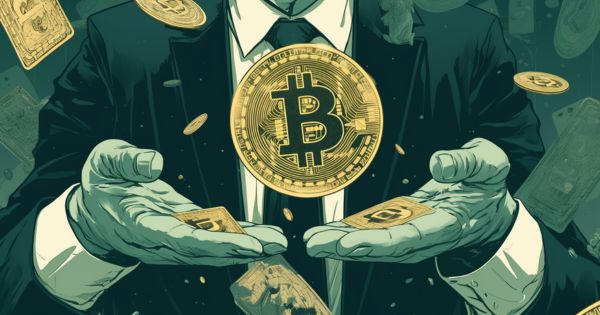Bitcoin has an infinite supply?
BlackRock's Bitcoin Explanation Video Sparks Debate: Is Bitcoin's Supply Truly Limited?
BlackRock's recent explainer video on Bitcoin has ignited a heated debate within the cryptocurrency community, questioning the absolute guarantee of Bitcoin's 21 million coin supply limit and bringing the scarcity and value proposition of Bitcoin back into sharp focus.
The controversy stems from a three-minute video released by BlackRock on December 17th, aiming to explain Bitcoin's fundamentals. The video highlights Bitcoin's 21 million coin supply cap as a key pillar of its value as a deflationary asset, stating that its hard-coded rules "control supply, purchasing power, and help avoid the potential risks of abusing the printing of ever more money." However, a disclaimer within the video stating, "There is no guarantee that Bitcoin's 21 million coin supply cap will not change," caused a significant stir.
This disclaimer quickly sparked heated discussions online.
Critics argued that it could potentially undermine Bitcoin's legitimacy. Joel Valenzuela, Director of Marketing and Business Development at Dashpay, voiced his skepticism. Ethereum developer Antiprosynthesis bluntly stated, "BlackRock understands Bitcoin better than Bitcoin maximalists." Conversely, Michael Saylor, Executive Chairman of MicroStrategy and a staunch Bitcoin advocate, retweeted the video, further amplifying its reach.
Bitcoin's Unlimited Supply? Technically Feasible, but Costly
Technically, altering Bitcoin's supply cap is theoretically possible through a hard fork. However, this would require a widespread consensus among all Bitcoin stakeholders—including node operators, developers, miners, and investors—a monumental task.
Bitcoin developer "Super Testnet" (the force behind BitVM) pointed out that while a hard fork could create a new blockchain with an unlimited supply, it would no longer be the Bitcoin envisioned by Satoshi Nakamoto. "The inflation cap is a defining characteristic of Bitcoin," Super Testnet quoted from the Bitcoin whitepaper. "Remove it, and you don't have Bitcoin anymore." He further compared this to asking, "What would it take to turn Bitcoin into PayPal?"
Any attempt to change the supply cap would face significant resistance. The 2016-2017 block size war serves as a precedent. A proposal to increase Bitcoin's block size limit garnered 95% miner support but still failed due to opposition from node operators and the broader community, ultimately leading to the creation of Bitcoin Cash.
Miners' Economic Predicament and Bitcoin's Future
The main argument against removing Bitcoin's supply cap is intrinsically linked to its long-term security model. Bitcoin miners rely on block rewards and transaction fees to maintain the network's operation. Block rewards halve every four years, currently at 3.125 BTC per block (approximately USD 316,950 at current prices), halving to 1.625 BTC in 2028. This will put immense pressure on miners' economic viability. The last Bitcoin is projected to be mined in 2140, after which miners will rely entirely on transaction fees for sustenance.
Some argue that further development of Bitcoin's application layer, such as decentralized finance (DeFi) and NFTs, is necessary to sustain sufficient network activity and transaction fee revenue to support miners. However, periods of soaring transaction fees are typically short-lived, as seen during the Bitcoin Ordinals craze.
A Philosophical Debate: Community Consensus and Bitcoin's Future
The debate surrounding Bitcoin's supply cap is not merely a technical issue but a profound philosophical one. For many, the fixed supply is a core tenet of Bitcoin, and any alteration could lead to community schisms and competing chains. BlackRock's disclaimer, while hypothetical, reignited this debate, highlighting the complexities of Bitcoin's decentralized governance structure. Ultimately, whether Bitcoin's supply cap remains truly fixed depends on the collective will of its stakeholders to uphold its fundamental principles.




